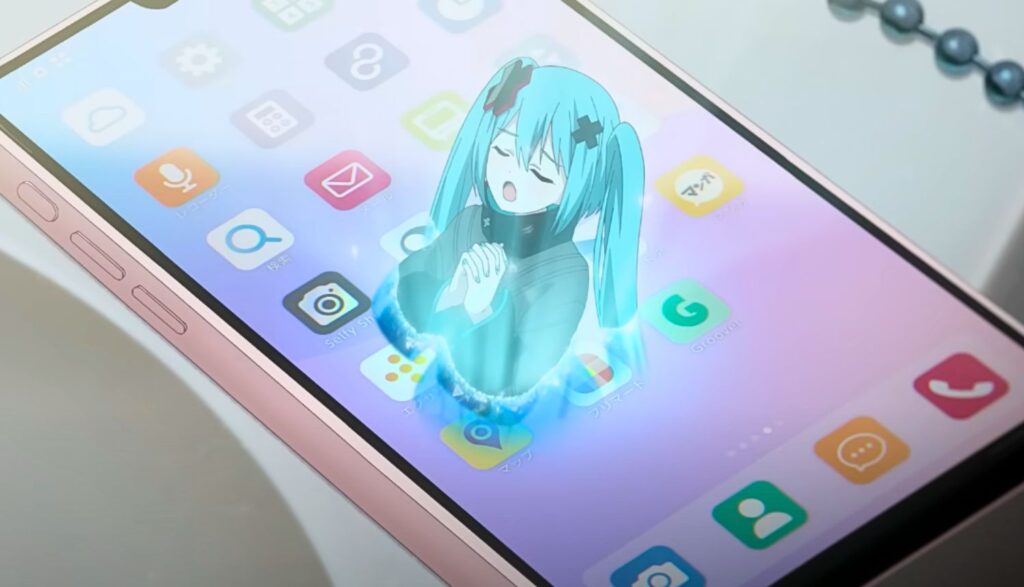
If the movie title, COLORFUL STAGE! The Movie: A Miku Who Can’t Sing doesn’t ring any bells for you, it’s probably because you’re not a big fan of Japanese-based rhythm video games. Because in certain parts of the world, the musical game this film is based on, Hatsune Miku: Colorful Stage! (also known as Project SEKAI), is a pretty big deal.
At last count, the title has at least 10 million users globally.
The game story focuses on young people who find themselves transported to parallel worlds called SEKAI. There they meet various virtual singers (called Miku) who help them express their true feelings through music. In fact, there are as many SEKAI and Mikus as there are emotions, and each caters to its young human users.
That’s essentially what the movie (presented in Japanese with English subtitles) is all about. Only in this case there’s a particular Miku who can’t seem to express her joyous song in order to help depressed people who are connected to her crumbling SEKAI. So, it’s time for young humans to unite and bring this Miku’s song to those in the world who desperately need the joy and inspiration that music can deliver.
That’s a simple and sweet idea that COLORFUL STAGE! The Movie conveys withswirling graphics and bright bouncy tunes. It tells us that friendship can move great obstacles. Likewise, music can make us smile; it can give us hope and set our hearts racing. Music can help us express the things we sometimes cannot say.
From a content perspective, there’s not a lot to worry over here. The worst comes out through the thoughts of darkly distraught and depressed people who think themselves hopeless and useless. One person even goes so far as to wish he were dead; he also expresses his belief that no one would care if he wasn’t around.
But those are the very thoughts and emotions that the film is trying to point to and decry. The Mikus and teens all desperately want to give those depressed people a sense of hope and possibility through their music.
A news reporter wonders if the magical happenings spilling over into the real world have a “spiritual” or “occult” origin. And another person mentions that the “negativity devils” have got him down. Someone says that their current situation is “our little oasis in hell,” their friend balks at that usage.
We see some anime girls in short skirts, though there’s nothing sexual in the mix.
As mentioned above, one character is depressed enough to consider taking his life.
One person says that something “p-sses” him off.
None.
None.
Apart from the handful of content concerns mentioned above, COLORFUL STAGE! The Movie: A Miku Who Can’t Sing invites fans of the game into an upbeat and inspiring story that’s about as innocent as it gets in the anime genre.
Perhaps the most frustrating part of the movie, right out of the gate, is that it doesn’t take the time to give you any backstory. The film assumes you’re a fan and that you already know everyone and everything when you step in.
But since there are some 20-plus characters spread across five different music groups—a rock band, stage play performers, idol groups and the like—it’s a lot to track while you’re quickly reading English subtitles.
If you’re up for it, though, there’s much to like here: There’s anime sparkle, enjoyable music and a call to reach out to those in need of a helping hand and a cheerful song.

After spending more than two decades touring, directing, writing and producing for Christian theater and radio (most recently for Adventures in Odyssey, which he still contributes to), Bob joined the Plugged In staff to help us focus more heavily on video games. He is also one of our primary movie reviewers.